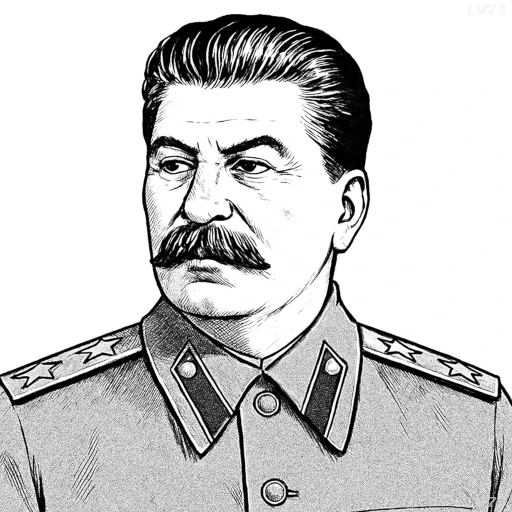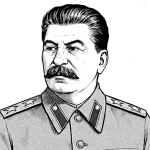“Ideas are more powerful than guns. We would not let our enemies have guns, why should we let them have ideas.”

- December 18, 1878 – March 5, 1953
- Born in Georgia
- Politician
table of contents
Quote
“Ideas are more powerful than guns. We would not let our enemies have guns, why should we let them have ideas.”
Explanation
This quote reveals Stalin’s belief in the supremacy of ideology as a tool of power and control. For Stalin, ideas—particularly political ideologies that opposed his regime—were far more dangerous than physical weapons, as they could challenge the very foundation of the state and its authority. The use of “guns” here is metaphorical, symbolizing the tools of physical power, while “ideas” represent the intellectual and ideological forces that could inspire opposition. Stalin saw the spread of counter-revolutionary ideas as an existential threat to the Soviet state, more dangerous than any armed uprising, because they could sway public opinion, weaken loyalty to the regime, and potentially destabilize the system.
Under Stalin’s rule, this perspective translated into severe repression of dissenting ideas. The Soviet government implemented strict censorship, arrested intellectuals, and used state-sponsored propaganda to control the flow of information. The regime’s paranoia about ideas was evident in the Great Purge, during which not only political opponents but also artists, writers, and thinkers were persecuted for their potential to inspire opposition through their ideas. Stalin’s actions illustrated his view that the freedom to express ideas contrary to the state’s ideology was an immediate threat to the integrity of the Soviet Union.
This quote serves as a stark reminder of the dangers of intellectual suppression and the lengths to which authoritarian regimes will go to control not only physical power but also the free exchange of ideas. In the modern world, it raises important questions about the balance between freedom of expression and the responsibility of governments to protect national security. It also underscores the need to safeguard freedom of thought as essential to a vibrant, democratic society—where ideas, even those that challenge the status quo, are crucial to progress and the protection of individual rights.
Would you like to share your impressions or related stories about this quote in the comments section?
